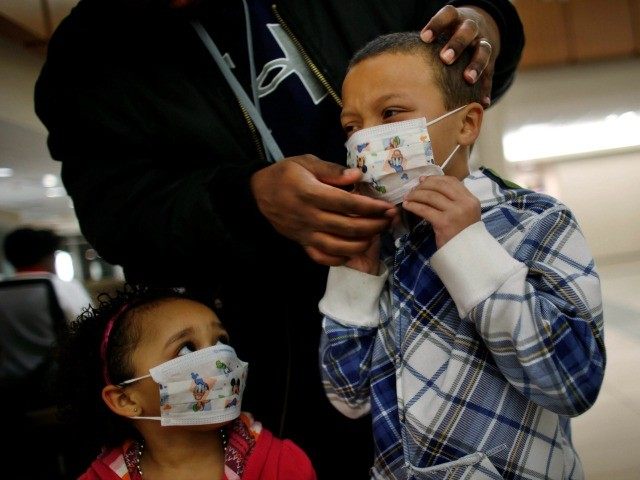Children rarely transmit the Chinese coronavirus and, therefore, schools should reopen –albeit with certain safety protocols — according to a commentary based on a recent study in the American Academy of Pediatrics journal, Pediatrics.
Benjamin Lee, M.D. and William V. Raszka, Jr., M.D — both pediatric infectious disease specialists at the University of Vermont’s (UVM) Larner College of Medicine. Dr. Raszka — published a commentary titled “COVID-19 Transmission and Children: The Child Is Not to Blame,” citing the conclusions of a recent study published in Pediatrics, which found that children very rarely transmit the Chinese coronavirus:
A new paper in Pediatrics from University of Vermont researchers: "Children infrequently transmit Covid-19 to each other or to adults…schools…can and should reopen in the fall." https://t.co/yPxHBrAkPh
— Avik Roy (@Avik) July 17, 2020
Per UVM:
In the new Pediatrics study, Klara M. Posfay-Barbe, M.D., a faculty member at University of Geneva’s medical school, and her colleagues studied the households of 39 Swiss children infected with Covid-19. Contract tracing revealed that in only three (8%) was a child the suspected index case, with symptom onset preceding illness in adult household contacts.
In a recent study in China, researchers’ contact tracing demonstrated that of the 68 children with Covid-19 admitted to Qingdao Women’s and Children’s Hospital from January 20 to February 27, 2020, 96% were household contacts of previously infected adults. In another study of Chinese children, nine of 10 children admitted to several provincial hospitals outside Wuhan contracted Covid-19 from an adult, with only one possible child-to-child transmission, based on the timing of disease onset.
In a French study, a boy with Covid-19 exposed over 80 classmates at three schools to the disease. None contracted it. Transmission of other respiratory diseases, including influenza transmission, was common at the schools.
Raszka described the data as “striking,” noting that it suggests adults — not children — are contributing to the spread of the virus.
“The key takeaway is that children are not driving the pandemic,” he said.
“After six months, we have a wealth of accumulating data showing that children are less likely to become infected and seem less infectious; it is congregating adults who aren’t following safety protocols who are responsible for driving the upward curve,” he added.
The UMV cited the authors, who concluded that it is important to reopen schools in the fall, despite the rising fears of the coronavirus. Not reopening schools, they said, could have a far greater negative impact in regards to childhood development.
“By doing so, we could minimize the potentially profound adverse social, developmental, and health costs that our children will continue to suffer until an effective treatment or vaccine can be developed and distributed, or failing that, until we reach herd immunity,” they said.
The findings come as local officials plan the 2020-2021 academic year. Some districts, like the Los Angeles Unified School District, have opted to begin the year with strictly virtual learning and no immediate plans for students to physically return to class. Others, like Philadelphia schools, have opted for a hybrid model, embracing an A/B schedule, allowing students to learn in a physical classroom twice per week and complete the remaining three days of the school week online.
The American Academy of Pediatrics (AAP) “strongly advocates that all policy considerations for the coming school year should start with a goal of having students physically present in school.” The AAP contends, as the authors of the UVM commentary acknowledged, that the virus behaves “differently in children and adolescents than other common respiratory viruses, such as influenza, on which much of the current guidance regarding school closures is based.”

COMMENTS
Please let us know if you're having issues with commenting.